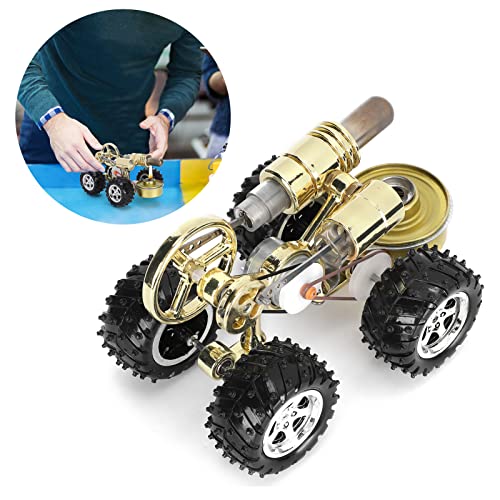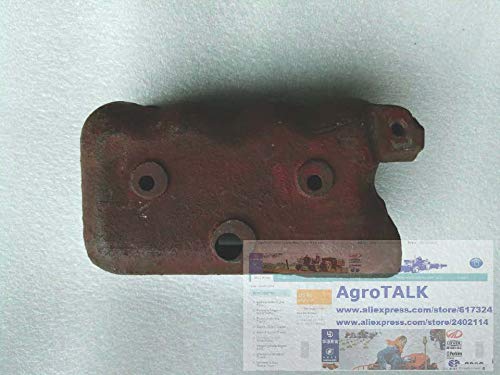My machines are in my garage which I generally only heat when I am working out there. It stays in the 40's otherwise. The problem is condensation in the spring on anything that is not ambiant temperature. Especially the floor and the machines. What is the best way to protect the machines from rust in this case?
You are using an out of date browser. It may not display this or other websites correctly.
You should upgrade or use an alternative browser.
You should upgrade or use an alternative browser.
Humidity Problem
- Thread starter Homebody
- Start date

Help Support Home Model Engine Machinist Forum:
This site may earn a commission from merchant affiliate
links, including eBay, Amazon, and others.
Oh boy, now heres an issue I can relate to. I keep my heat on in my shop as long as I can in the spring to keep the heat in the machines until those early humid days pass. Yesterday I hurried to get the airconditioner in the hole to try to get things stabilized. Yes, I aircondition my shop in the summer just to keep the humidity down. It also gets me out in the shop when the hot spell gets here. As for protection, I keep a couple of cans of Remoil around. This is a spray can of rust inhibitor and lubricant for firearms and is sold at Wallmart. Where I live, we will go from 50 Degrees F one day and 90 degrees F the next in the spring. This makes it very difficult to keep everything from sweating moisture and rusting. I try to keep a healthy dose of Remoil on everything and keep the door to the shop closed as much as posible. An ongoing problem that we all deal with if you live around humidity. Keep everything protected with a rust inhibitor and good luck, Dave
Just covering your machines with a dust jacket seems to help a great deal.
The cover needs to be porous - canvas etc - plastic tends to "sweat"
I don't know exactly why but I suspect it hampers convection of moist air onto the cold machinery and helps to trap protective oil fumes under the covers.
A block of camphor or those speciality vapour phase protection devices work as well if used in conjunction with a cover.
http://www.centurycorrosion.com/products/mil-10.pdf
Ken
The cover needs to be porous - canvas etc - plastic tends to "sweat"
I don't know exactly why but I suspect it hampers convection of moist air onto the cold machinery and helps to trap protective oil fumes under the covers.
A block of camphor or those speciality vapour phase protection devices work as well if used in conjunction with a cover.
http://www.centurycorrosion.com/products/mil-10.pdf
Ken
I use one of those "damprid" canisters.It's an upper container of white crystals,which absorb the water.These turn into water,which is collected in the bottom container.When the crystals are gone completely,you tip out the water,and refill the upper container with crystals.
1 container keeps my machines rust free in a 20'x10' space over the winter.http://www.damprid.com/
No relation,blah,blah,blah.
1 container keeps my machines rust free in a 20'x10' space over the winter.http://www.damprid.com/
No relation,blah,blah,blah.
- Joined
- Oct 20, 2010
- Messages
- 913
- Reaction score
- 132
Most of my life my shop was in the basement. A de humidifier is the tool, if your can buy one that has a connection for a garden hose, run that to a sump, or mount it high and run to a sink. In a dry basement 6-10 pints a day is the about what it drains, this to get 50% humidity, Your mileage may vary.
Homebody said:My machines are in my garage which I generally only heat when I am working out there. It stays in the 40's otherwise. The problem is condensation in the spring on anything that is not ambiant temperature. Especially the floor and the machines. What is the best way to protect the machines from rust in this case?
The problem your running into is dew point, during the night, the temps drop faster than the metal of your machines, they stay warm for a while, but cool off slowly. Then, in the morning, the air temperature goes up faster than your machines, which stay cool for some time....if it's humid...like in the spring a temperature difference of as little as 3 degrees C is all it takes for condensation to form on the cool metal. That's all it takes to get the rust fairy.
A dehumidifier will help. Keeping the machines warm will also work.
I've seen articles on heaters being put on lathes to keep them warm in Model Engineer.
You might want to try a light buld inside a compartment perhaps?....your mileage may vary, and be very careful not to set anything on Fire!...... ;D
Dave

$99.99
AHS Outdoor Wood Boiler Yearly Maintenance Kit with Water Treatment - ProTech 300 & Test Kit
Alternative Heating & Supplies

$40.02
$49.99
Becker CAD 12 3D - professional CAD software for 2D + 3D design and modelling - for 3 PCs - 100% compatible with AutoCAD
momox Shop

$94.99
$109.99
AHS Woodmaster 4400 Maintenance Kit for Outdoor Wood Boiler Treatment
Alternative Heating & Supplies

$426.53
DM14 Engine Build Kit, Metal Engine Build Model Great Metal Material for Engineer for Factory
Easoger Official

$29.95
Competition Engine Building: Advanced Engine Design and Assembly Techniques (Pro Series)
Amazon.com Services LLC

$39.99
$49.99
Sunnytech Low Temperature Stirling Engine Motor Steam Heat Education Model Toy Kit For mechanical skills (LT001)
stirlingtechonline

$109.99
AmTech300 - Boiler Treatment Professional Strength (Rust Inhibitor For Outdoor Wood Boilers)
Alternative Heating & Supplies

$154.76 ($1.38 / oz)
Replacement Combustion Chamber Kit, Burnham V8 and V8H, 1-6 Sec, 108136-01, 1129
Plumbing Planet

$188.98
TM NEXDYNAMI RE41157 Water Pump Compatible With/Replacement For/John Deere 6200 7400 6300 6600 6500 6400 7220 7600 7200 RE41157
VIVID MARKET CORPORATION

$649.00
$699.00
FoxAlien Masuter Pro CNC Router Machine, Upgraded 3-Axis Engraving All-Metal Milling Machine for Wood Acrylic MDF Nylon Carving Cutting
FoxAlien Official
Hi all well i live in the UK and it seems to be always raining but i don't have any problems with rust as Wat seems to happen is people mack their work shops air tite where the key is let your work shop breath this helps the other thing is soft soldering with plume rs flux which is very corrosive if you are yousing the stuff open all Doris windows to let out the fumes and not let them settle on your machinery also as bin shed covey you mashens with a breathable covering the one on me lathe is a old bed Cuvier made out of Cotton and the one on me drill is me old denim jacket regards bob
mehmet1846
Member
- Joined
- Aug 18, 2010
- Messages
- 9
- Reaction score
- 0
I have the same problem in my shop and I'm using dehumidifier machine...It works very well and makes the 50% the relative humidity in the shop...It is very small machine...60 cm. heigth and 40cm x 40 cm W and D. I can advise it...
Mehmet
Mehmet
GWRdriver
Senior Member
- Joined
- Jan 22, 2009
- Messages
- 721
- Reaction score
- 110
That may be so although I've never had such a problem with the plastic cover on a lathe which is in a space which can occasionally become fairly humid. Dehumidification is the best answer. Cloth or any porous organic material is not a good cover material for machine tools or tooling except as dust covering and then with cautions. It's OK if it's removed frequently and the bare surfaces are kept oiled, but otherwise if it is allowed to rest on areas of bare metal, with no circulatory air space behind it, at every point where the cloth bears on the metal moisture will quickly accumulate and can create a rust spot. The same is true of cardboards and paper. Never store ground finish tooling, chucks etc, in or touching cardboard or paper, unless it's the oiled or waxed kind made for tool wrapping.The cover needs to be porous - canvas etc - plastic tends to "sweat"
In addition to all the advice given, another thing which will help a great deal is to keep a small fan running, to keep the air in the space and around the machines moving.
One guy told me - "Buy a cheap pedestal fan and have it running on LOW all the time, moving the air near the machines. It'll help with corrosion." I tried it, and I believe it does work. Doesn't eliminate it completely, but helps.
One other thing I've done... I built a nice CNC bench mill, which was a lot of work, and the thought of those precision ball screws and such rusting away kept me up at night. What I did - they sell these heating rods that guys use for their gun safes, called "Golden Rods" and similar. They look like this:

They are not super-expensive. You plug them in, they draw from 10 to 40 watts, and get fairly hot. You then place one of these below the machine, then cover the machine with a bed sheet or cotton cloth. The hot air rises, gets trapped by the cloth, and rust pretty much is impossible. This setup works well.
One other thing I've done... I built a nice CNC bench mill, which was a lot of work, and the thought of those precision ball screws and such rusting away kept me up at night. What I did - they sell these heating rods that guys use for their gun safes, called "Golden Rods" and similar. They look like this:

They are not super-expensive. You plug them in, they draw from 10 to 40 watts, and get fairly hot. You then place one of these below the machine, then cover the machine with a bed sheet or cotton cloth. The hot air rises, gets trapped by the cloth, and rust pretty much is impossible. This setup works well.
crab
confused
- Joined
- May 30, 2011
- Messages
- 193
- Reaction score
- 2
Google Boeshield T-9,it is a spray on rust and corrosion protection lubricant that works very well and lasts a long time.For a heavy coat you spray it on and let it dry and for a light coat spray it on and wipe it off.It dose not have silicon or Teflon in it so it is also great for wood working machines.My brother lives on the coast and he loves it.Bill
I use AmourAll on my machines it prevents the rust! I also coat my shined up brass parts with AmourAll & it prevents the tarnish problem. I use the original formula.
As Steamer pointed out the problem is the machinery getting cooler than the dew point - so anything that hinders this process will work.
ie dehumidification, covering, keeping the machines warmer than the dew point, use of corrosion inhibitors etc.
The problem in relying only on oils is the water can penetrate the oil (being heavier) and worse with sulpherised cutting oils will generate sulphuric acid.
Ken
ie dehumidification, covering, keeping the machines warmer than the dew point, use of corrosion inhibitors etc.
The problem in relying only on oils is the water can penetrate the oil (being heavier) and worse with sulpherised cutting oils will generate sulphuric acid.
Ken
When I moved from DRY DRY Idaho to the Oregon coast I was shocked at the speed that things rusted here. I only live a mile inland from the ocean and we get heave dew almost every night. I have found that a light coating of WD40 helps a lot, but I have decided that air circulation helps the most. I try to keep the shop doors open during warm weather and I installed a ceiling fan that I run on low when ever I'm in the shop. Covering up a item with plastic or canvas only condensates moister. Air circulation seems to work the best.
Similar threads
- Replies
- 26
- Views
- 3K
- Replies
- 7
- Views
- 1K

























![MeshMagic 3D Free 3D Modeling Software [Download]](https://m.media-amazon.com/images/I/B1U+p8ewjGS._SL500_.png)






























